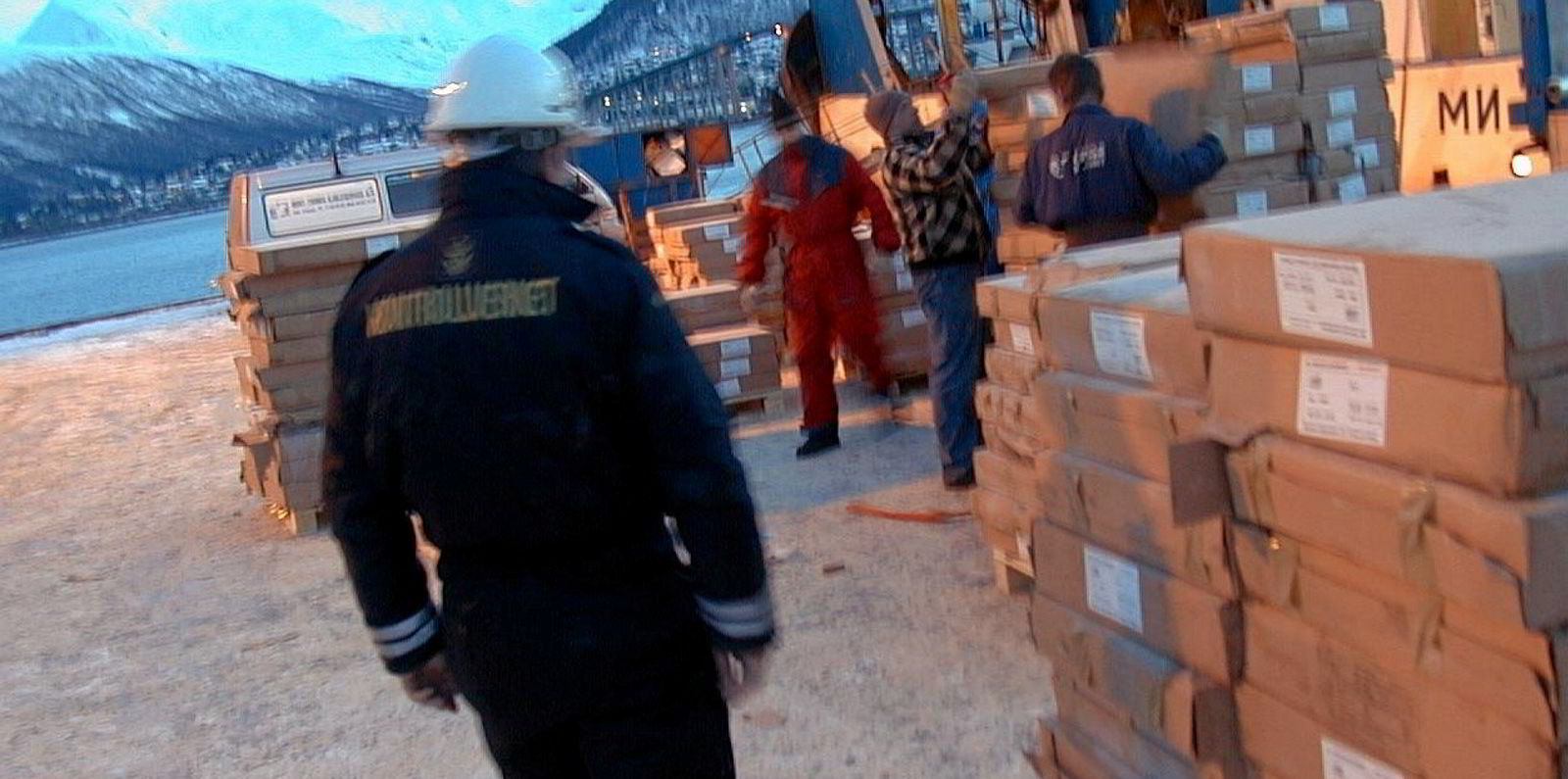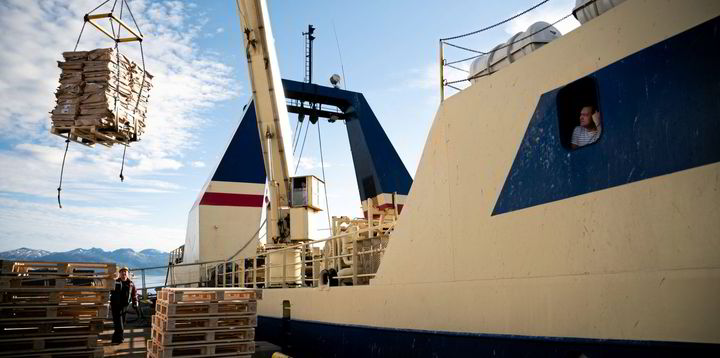The chronicle was first published in Nordnorsk Dependation and was printed in Nordlys on 23 February.
In the 1990s and early 2000s, we were dealing with Russian fisheries in the Barents Sea. It was known in industry, fisheries management and marine research that there were times when fish catches exceeded quotas for both the Norwegian and Russian sides. In the early 1990s, countries such as Iceland and Greenland settled and fished without quota, first in the fish protection area around Svalbard, and later in Smuthavit.
Russian ships did the same thing after the dissolution of the Soviet Union. On the Norwegian side, a lot of efforts have been made to eliminate overfishing in the Barents Sea through the Coast Guard and the Fisheries Directorate, and not least through the work of the Joint Norwegian-Russian Fisheries Committee.
Detecting poaching in Russia
Now former editor Niels Torsvik at FiskeribladetFiskaren has published the book “Milliardranet in the Barents Sea” at the Utenfor Allfarvei publishing house in Harstad. On Thursday, February 15, we participated in the book presentation at the international symposium at the Tromsø City Library and Archives. The main source for Torsvik's book is Tor Gjellstrup, a former advisor to the Fisheries Directorate's analysis unit of Russian and later international fisheries crimes. The Analysis Unit worked closely with the Coast Guard, with former Lieutenant Captain Stig Flatt given an important role involved in intelligence work.

The book describes how this analysis group, affiliated with the Fisheries and Coast Guard Directorate, was eventually able to uncover Russian overfishing, which in several years from 2002 to 2008 exceeded 100 thousand tons of white fish, especially cod. The International Council for the Exploration of the Seas (ICES) has included in its stock calculations a total overfishing of 611,000 tons for these years. The book also describes how a Norwegian company founded in Drøbak in 1997 contributed to fish sales from Russian ships. The company grew significantly, eventually moving to London and then to Hong Kong where it was part of a larger company with a turnover of several tens of billions. One of the founders later moved to Switzerland with a multi-billion fortune.
Monitor port status
The analysis group produced a total of 53 concrete, well-documented cases of poaching linked to Russian fishing vessels and companies that were handed over to Russian authorities in Murmansk and central Moscow. The Murmansk border control body has routinely prosecuted cases in Russian courts with convictions, fines and penalties as a result. Centrally in Moscow, documents for the same cases have disappeared!
Article continues below ad
The overview of overfishing in Russia was endorsed by the International Council for Marine Research in Copenhagen, which prepared stock estimates and quota advice for fish stocks in the Barents Sea. Through documents submitted to the Joint Norwegian-Russian Fisheries Committee, action was taken against poaching, and analyzes showed that it stopped around 2009.
An important factor in this work was the development of an international port state control agreement. This means that vessels delivering catch at foreign ports must document the country from which it came (flag state), the fishing rights the vessel enjoys, the location of the catch, and the exact catch of the species they caught. Former Fisheries Minister Helga Pedersen takes much of the credit for reaching the international agreement on port state control. The book also highlights Adviser Terje Lobach at the Norwegian Fisheries Directorate as pivotal in developing the regulations, which gradually gained international support.
Illegal, unreported and unrecorded fishing (IUU – fishing) is a global problem whose magnitude has been estimated by the United Nations Food Organization (FAO) at approx. 25 percent of the world's fisheries, a total of approx. 26 million tons worth $10-25 billion. IUU fishing takes place in international waters, but also partly in areas within national jurisdiction. The Convention on Global Port State Control which entered into force as of 2016 (it had already been submitted in 2007 to Parties to the North-East Atlantic Fisheries Organization) and the efforts of FAO in general are important in working to combat IUU fishing. to organize.

Important cooperation in the field of fishing
After almost 20 good years for the Barents Sea cod fishery, marine scientists are warning of declining quotas in the coming years, mainly due to failed recruitment into cod stocks. This comes at a time when the relationship with Russia has become completely different after the attack on Ukraine on February 24, 2022. Bilateral and institutional cooperation has been mostly suspended.
But Norway chose to continue fishing cooperation with Russia and grant Russian fishing vessels access to the dock, deliver the catch and receive service in Kirkenes, Batesfjord and Tromsø. Research and management cooperation in the Barents Sea also continues.
We believe that this is a very wise management policy on the part of the Norwegian authorities as it provides the basis for minimal interaction that provides the basis for continued sustainable management and practice of fisheries in the Barents Sea. We have been involved in this project for so long that we remember 18 April 1989 when cod quotas were eliminated and coastal cod fishing ceased.
The difficult decision made at that time helped save the stock from a complete collapse. If developments in Russia force a cessation of fishing cooperation, we must undertake research, management and fishing in the Norwegian area, especially in the Fisheries Protection Area, in a way that enables us to keep stocks alive. If you do not cooperate in management and knowledge sharing, the logical result will be increased uncertainty and reduced stakes.
Large cod (skreien) live and spawn mainly along the coast and in Norwegian marine areas, but small fish and small fish are often found in the Russian region of the Barents Sea. That's why cooperation with Russia in fisheries, which is scheduled to last for 70 years, is important – as long as it lasts!

“Explorer. Unapologetic entrepreneur. Alcohol fanatic. Certified writer. Wannabe tv evangelist. Twitter fanatic. Student. Web scholar. Travel buff.”




